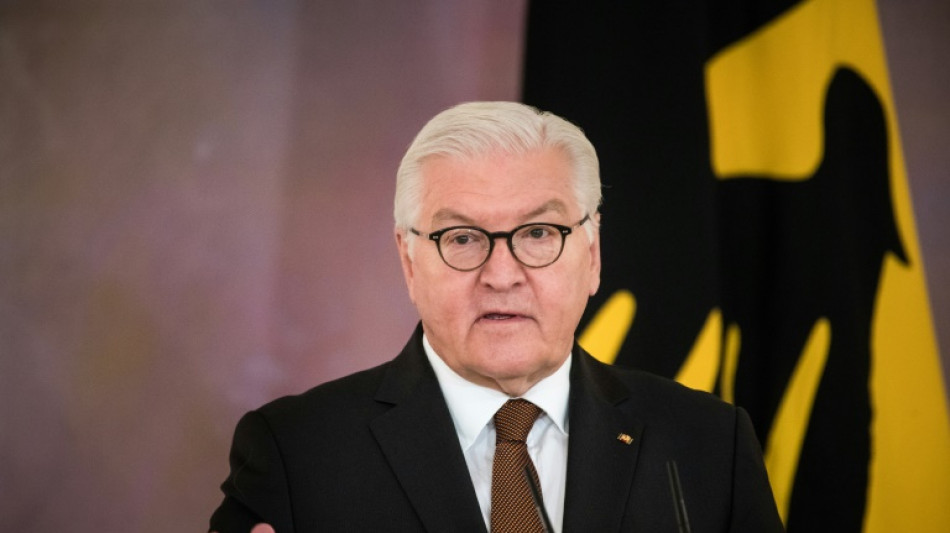
-
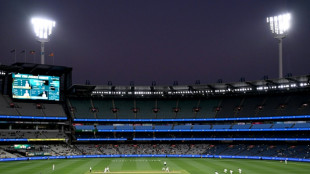 Security 'breakdown' allows armed men into Melbourne's MCG
Security 'breakdown' allows armed men into Melbourne's MCG
-
Norris fastest in Japan GP first practice, Tsunoda sixth on Red Bull debut

-
 Albon says Thailand taking bid for F1 race 'very seriously'
Albon says Thailand taking bid for F1 race 'very seriously'
-
'It's gone': conservation science in Thailand's burning forest
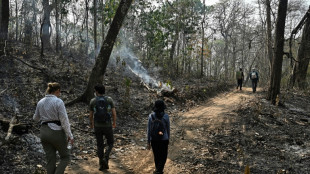
-
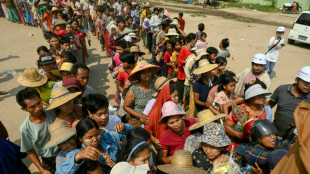 Protest as quake-hit Myanmar junta chief joins Bangkok summit
Protest as quake-hit Myanmar junta chief joins Bangkok summit
-
EU leaders push for influence at Central Asia summit
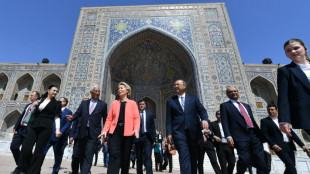
-
 Asian stocks extend global rout after Trump's shock tariff blitz
Asian stocks extend global rout after Trump's shock tariff blitz
-
Lewandowski, Mbappe duel fuelling tight La Liga title race

-
 South Korea court upholds President Yoon's impeachment, strips him of office
South Korea court upholds President Yoon's impeachment, strips him of office
-
Liverpool march towards title as Man City face Man Utd

-
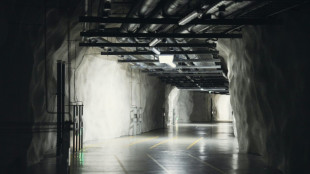 Finland's colossal bomb shelters a model for jittery Europe
Finland's colossal bomb shelters a model for jittery Europe
-
Athletes frustrated as France mulls Muslim headscarf ban in sport
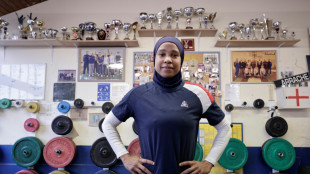
-
 Korda downs Kupcho to stay alive at LPGA Match Play
Korda downs Kupcho to stay alive at LPGA Match Play
-
German industry grapples with AI at trade fair
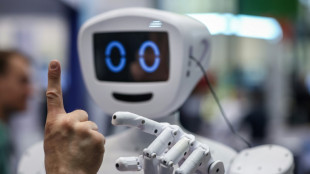
-
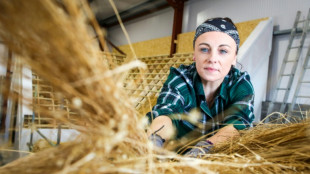 Irish school trains thatchers to save iconic roofs
Irish school trains thatchers to save iconic roofs
-
'Frightening': US restaurants, producers face tariff whiplash
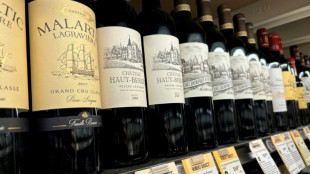
-
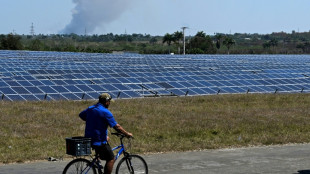 Cuba looks to sun to solve its energy crisis
Cuba looks to sun to solve its energy crisis
-
Experts warn 'AI-written' paper is latest spin on climate change denial

-
 PSG eye becoming France's first 'Invincibles'
PSG eye becoming France's first 'Invincibles'
-
Late birdie burst lifts Ryder to Texas Open lead

-
 Five potential Grand National fairytale endings
Five potential Grand National fairytale endings
-
Trump purges national security team after meeting conspiracist
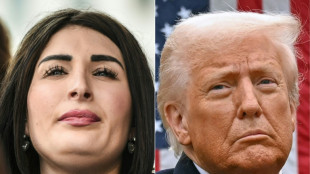
-
 More work for McIlroy even with two wins before Masters
More work for McIlroy even with two wins before Masters
-
Trump hopeful of 'great' PGA-LIV golf merger
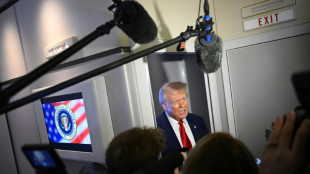
-
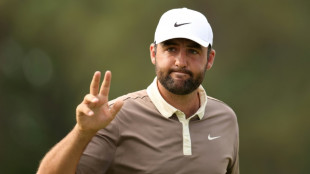 No.1 Scheffler goes for third Masters crown in four years
No.1 Scheffler goes for third Masters crown in four years
-
Where Trump's tariffs could hurt Americans' wallets
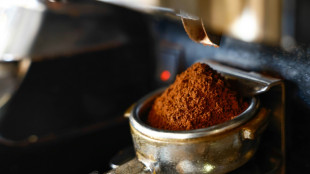
-
 Trump says 'very close to a deal' on TikTok
Trump says 'very close to a deal' on TikTok
-
Trump tariffs on Mexico: the good, the bad, the unknown
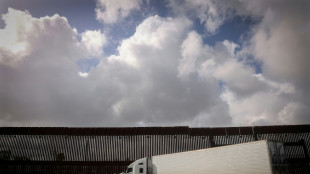
-
 Postecoglou denies taunting Spurs fans in Chelsea defeat
Postecoglou denies taunting Spurs fans in Chelsea defeat
-
Oscar-winning Palestinian director speaks at UN on Israeli settlements
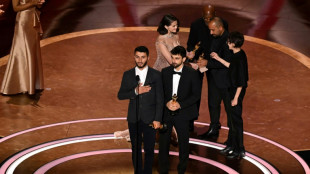
-
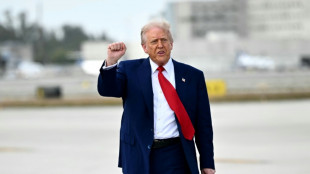 With tariff war, Trump also reshapes how US treats allies
With tariff war, Trump also reshapes how US treats allies
-
Fernandez fires Chelsea into fourth as pressure mounts on Postecoglou

-
 South Korea court to decide impeached president's fate
South Korea court to decide impeached president's fate
-
Penguin memes take flight after Trump tariffs remote island

-
 E.T., no home: Original model of movie alien doesn't sell at auction
E.T., no home: Original model of movie alien doesn't sell at auction
-
Italy's Brignone has surgery on broken leg with Winter Olympics looming

-
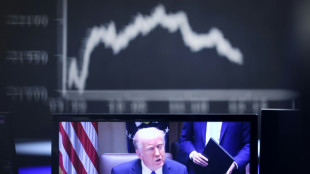 Trump defiant as tariffs send world markets into panic
Trump defiant as tariffs send world markets into panic
-
City officials vote to repair roof on home of MLB Rays

-
 Rockets forward Brooks gets one-game NBA ban for technicals
Rockets forward Brooks gets one-game NBA ban for technicals
-
Pentagon watchdog to probe defense chief over Signal chat row
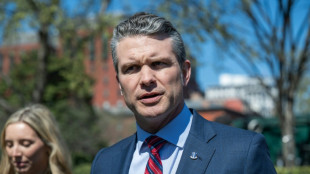
-
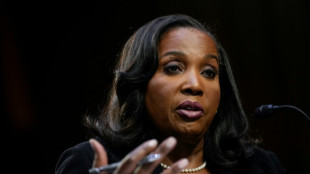 US tariffs could push up inflation, slow growth: Fed official
US tariffs could push up inflation, slow growth: Fed official
-
New Bruce Springsteen music set for June 27 release
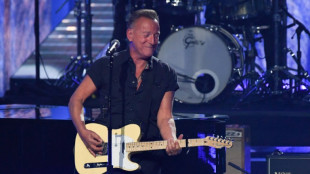
-
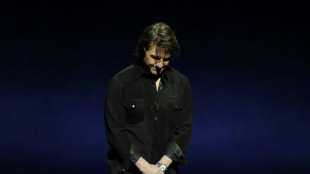 Tom Cruise pays tribute to Val Kilmer
Tom Cruise pays tribute to Val Kilmer
-
Mexico president welcomes being left off Trump's tariffs list
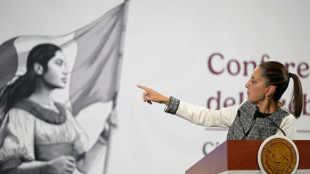
-
 Zuckerberg repeats Trump visits in bid to settle antitrust case
Zuckerberg repeats Trump visits in bid to settle antitrust case
-
US fencer disqualified for not facing transgender rival
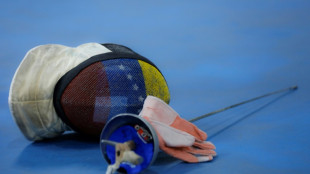
-
 'Everyone worried' by Trump tariffs in France's champagne region
'Everyone worried' by Trump tariffs in France's champagne region
-
Italy's Brignone suffers broken leg with Winter Olympics looming

-
 Iyer blitz powers Kolkata to big IPL win over Hyderabad
Iyer blitz powers Kolkata to big IPL win over Hyderabad
-
Russian soprano Netrebko to return to London's Royal Opera House


Popular incumbent Steinmeier eyes new term as German president
German President Frank-Walter Steinmeier is poised to be re-elected on Sunday for a second straight term, after gaining a reputation as a tireless defender of democratic values at a time when resurging far-right extremism and the coronavirus pandemic were putting them to the test.
The Social Democrat, 66, served twice as foreign minister in Angela Merkel's cabinet, stepping back from his duties as Germany's top diplomat to take on the ceremonial role as head of state in 2017.
With his snowy white hair, round glasses and dimpled smile, the trained lawyer has become one of Germany's most popular and trusted politicians.
The presidential role was an "honour" and an "enormous challenge" Steinmeier said in May last year when announcing his desire to stay in office until 2027.
The former foreign minister has cast himself as the conscience of the nation, occasionally stepping into political debates and speaking at memorials.
He has repeatedly warned against the rising threat of right-wing extremism in Germany and criticised scenes at Kabul airport after the city's fall as "shameful for the political West".
Steinmeier's time in office has been marked by the outbreak of the coronavirus pandemic in Germany at the start of 2020, with the president sometimes playing the role of a moral arbiter in public debates on health issues.
Earlier this year, Steinmeier held a public debate between health experts and coronavirus vaccine sceptics, a vocal minority in the country that has increasingly taken to the streets to protest against coronavirus rules.
- Second term -
The presidential election, normally held in the Bundestag building, will instead take place at Paul Loebe Haus, a post-modern office complex opposite the Chancellery in central Berlin, in order to meet pandemic distancing requirements.
The president is voted for by the Federal Convention, a one-off assembly made up of MPs and an equal number of state delegates, taking the total number close to 1,500.
Among the delegates are a number of public figures, including the Bayern Munich and German national team midfielder Leon Goretzka, selected by the Bavarian SPD.
With the backing of all the parties in the current coalition government, including Steinmeier's own Social Democrats, the Greens and the liberal FDP, as well as the support of the opposition conservatives (CDU-CSU), the incumbent is expected to win the vote comfortably.
Three other candidates have been nominated for the role by the far-right AfD, the far-left Linke party and the Freie Waehler, part of the ruling coalition in Bavaria.
Presidents can run for a maximum of two terms in Germany, though Steinmeier, who is expected to secure re-election, would be only the fourth person to do so.
The president's role in Germany is mostly symbolic, with the office holder acting as a constitutional counterpart to the head of government, currently Chancellor Olaf Scholz, a Social Democrat comrade.
L.Harper--AMWN